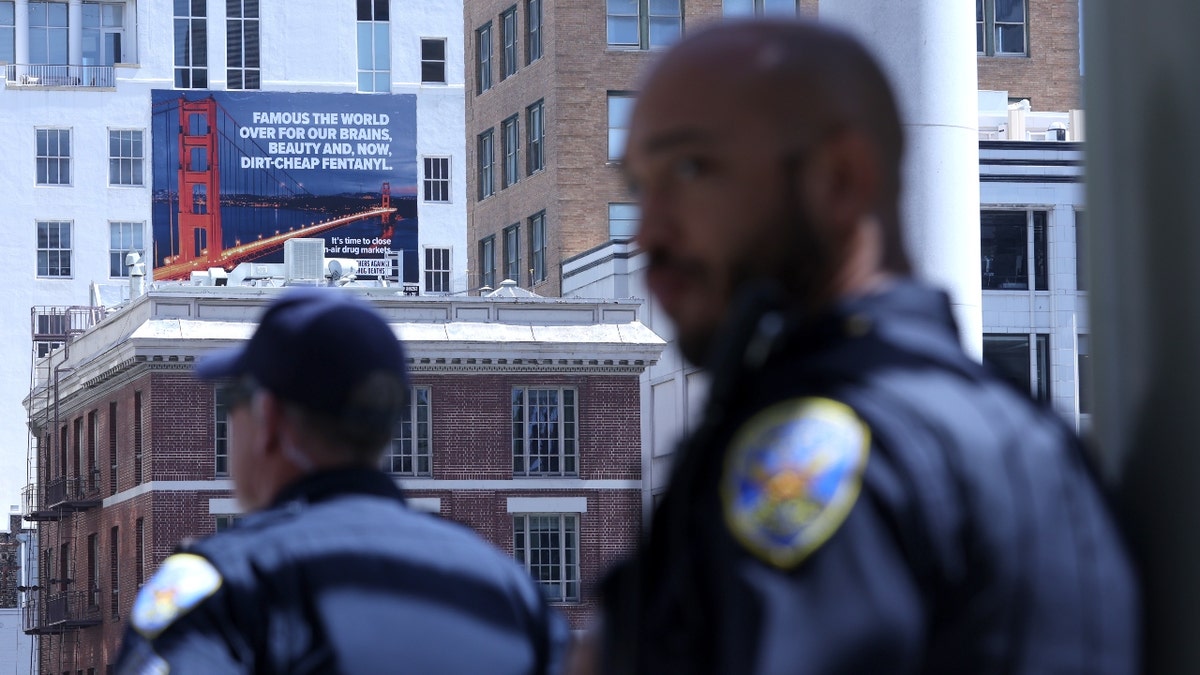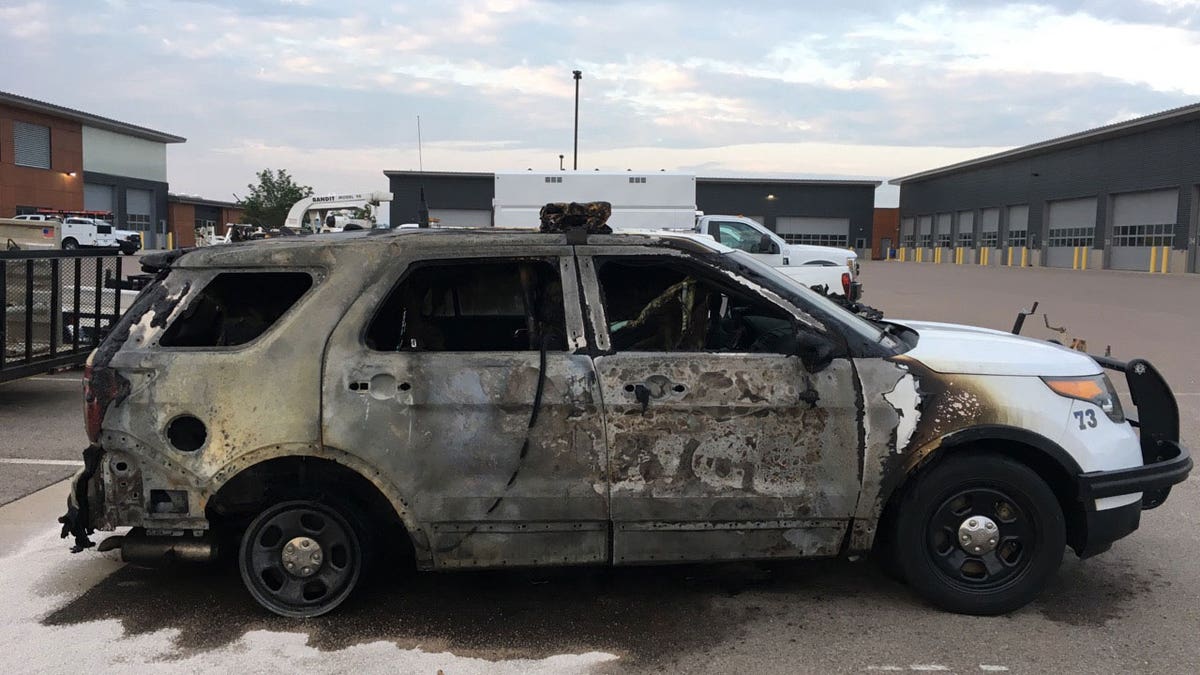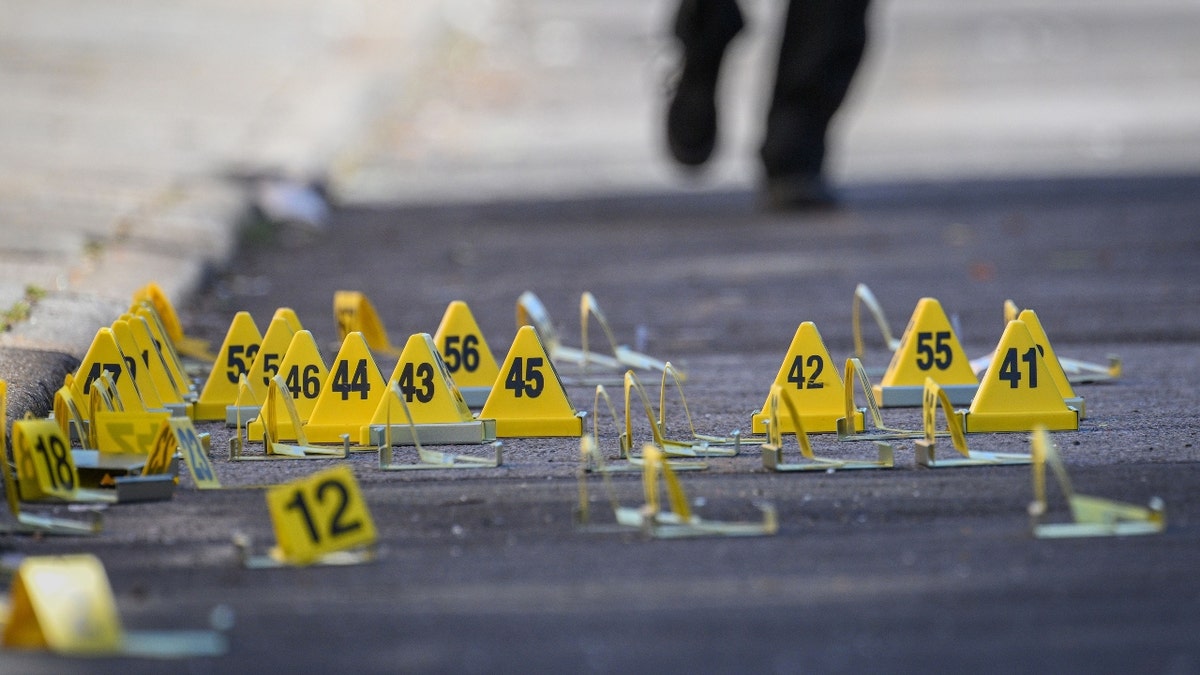NC congressman: Has 'constant demonization' of police made them tentative?
North Carolina Rep. Dan Bishop weighs in on the Uvalde school shooting and President Biden’s student loan forgiveness plan on ‘Fox & Friends.’
SAN FRANCISCO – Law enforcement officers from across the United States gathered this week to discuss a "perfect storm" of issues that major city departments have faced over the past two years.
A diverse group of police chiefs from major U.S. cities met at the 2022 Police Executive Research Forum (PERF)/ Major Cities Chiefs Association (MCCA) Annual Conference in San Francisco and pointed to four main issues plaguing departments since 2020: COVID-19, summer protests following the 2020 murder of George Floyd, a law enforcement workforce shortage and rising violent crime, particularly in the wake of three major mass shootings in Buffalo, New York; Uvalde, Texas; and Tulsa, Oklahoma.
"I think over the two days … we went through a myriad of issues that we've all seen through COVID before," Baltimore Police Chief and PERF President Michael Harrison told Fox News Digital. "[C]oming out of COVID has affected how people look at our profession from the outside, how we as officers look at ourselves on the inside, and how we perform and deliver police services and what we're up against — the obstacles that are in front of us."

Police from major cities met in San Francisco for the annual MCCA/PERF conference. (Justin Sullivan)
Police chiefs from cities where the homicide rate is trending upward, even if total violent crime is down, spoke first on Thursday.
WISCONSIN SHOOTING AT CEMETERY LEAVES MULTIPLE DEAD, POLICE SAY
Violent crime and morale
Louisville Police Department Chief Erika Shields acknowledged that her department has overcome significant hurdles and mistakes over the past decade, including issues before and after the killing of Breonna Taylor, that she has continued working to correct.
Officers who do not feel supported by the communities they serve need internal support from department leadership in order to successfully curb violence in neighborhoods most severely impacted by crime. Oftentimes, those communities are least likely to want a police presence in their neighborhoods as a result of years of distrust, according to Shields.
With adequate care for PTSD and general praise for officers, department chiefs feel they will be more effective in stopping violent crime.
TULSA HOSPITAL SHOOTING VICTIMS IDENTIFIED, ONE WAS GUNMAN'S SURGEON, POLICE SAY
Other officers also frequently emphasized the importance of establishing healthy relationships between police and members of the communities they serve — a tactic otherwise known as "community policing" — as a step in combating violent crime. Many police chiefs believe civilians feel more comfortable discussing crime incidents with police when they feel they can trust officers.
"Morale is something every police leader should be working on because … performance is always what we're concerned about, and morale sometimes correlates to performance," Harrison said of conversations about police morale.

Without support for PTSD and general praise for officers, departments will be more effective in stopping violent crime, Louisville Police Department Chief Erika Shields said. (Louisville Police Department)
Charlotte-Mecklenberg Police Chief Johnny Jenkins and Nashville Police Chief John Drake mentioned that they have diverted talent responding to property crimes toward violent crimes instead in an effort to curb fatal and nonfatal shootings.
District attorneys and court systems
Police chiefs from New York City, San Francisco, Philadelphia, Baltimore, Chicago, Milwaukee, Orlando and Los Angeles each expressed some concern with how their respective district attorneys or lead prosecutors, as well as their local court systems, have made significant judicial policy changes that have altered how and even whether accused criminals face justice.
CHICAGO POLICE SEARCH FOR MAN WHO POINTED GUN AT NEWS CREW DURING LIVE REPORT
At the same time, most chiefs who spoke recognized that the public looks for cooperation between police and district attorneys to establish safer cities. Philadelphia Police Chief Danielle Outlaw said her department meets weekly with District Attorney Larry Krasner’s office.
Police try to be politically neutral, chiefs said, but find themselves on a fine line politically due to the policies of elected leaders in their respective cities and states.

Police chiefs from New York City, San Francisco, Philadelphia, Baltimore, Chicago, Milwaukee, Orlando and Los Angeles each expressed some concern with how their respective district attorneys have made significant judicial policy changes. (Jerry Jackson/Baltimore Sun/Tribune News Service )
Some chiefs feel like their officers bear the brunt of issues with criminals who have been ignored by other areas of society and government until they commit a crime. And even after they commit a crime, some new district attorneys have chosen not to prosecute certain misdemeanors or to eliminate cash bail. Chiefs expressed particular concern over juveniles who commit violent crimes but avoid prosecution as a result of these new policies, saying young people feel emboldened when they commit a crime and successfully get away with it.
SEATTLE POLICE MEMO SHOWS DEFUNDED FORCE STOPPED INVESTIGATING NEW ADULT SEXUAL ASSAULTS THIS YEAR
NYPD Chief Kenneth Corey noted that 78% of those arrested for nonfatal shootings are currently walking the streets of New York City.
Harrison said he feels like he needs to retrain his entire department a moment’s notice when these new policies are put in place without adequate communication between sectors of the criminal justice system, adding that while prosecutorial policies may change, laws stay the same. Chicago Deputy Police Chief Eric Cater said 56% of those committing vehicular thefts in the Windy City are juveniles.
"[W]hat we found that everybody's dealing with the same issues at the same time, and if we put our minds together, we can help each other find solutions to those problems," Harrison said. "And I think this is how we all come together to lean on each other and draw from each other's expertise, each other's experiences."
Staffing shortages
Police departments in major cities are short-staffed and having trouble recruiting new officers and retaining those who already work for them. They want more funding — not less — to address both staffing and society’s concerns about transparency.
"Everybody is sort of dealing with the same issue," Harrison said, "And so there's no one solution to it, but meetings like this make us come together to work to improve the profession so that people would want to join and people will want to come and make a difference, whether it's in my town or in any other part of the country."
CLICK HERE TO GET THE FOX NEWS APP
Departments in cities across the U.S. are losing officers to suburban police departments. Several cities are incentivizing new recruits with signing bonuses. Washington, D.C., Mayor Muriel Bowser has proposed $20,000 signing bonuses for nearly 350 new officers as part of her 2023 budget, D.C. Chief Robert Contee said.
"It's about changing how people view our profession," Harrison said, "so that, number one, we can really spark an interest in policing and then delivering police services. In serving and protecting and getting back to just…being the noble profession that we know we can be" so that potential recruits want to join police departments.










































